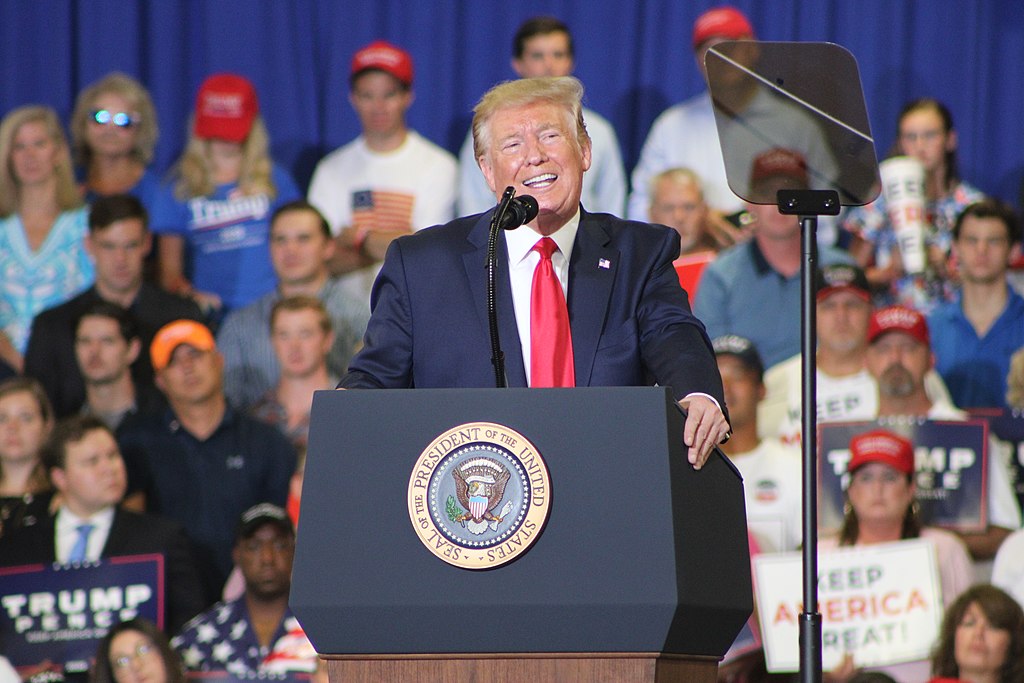As President Donald Trump begins his second term in 2025, his administration is advancing a sweeping deregulation agenda aimed at reducing federal oversight in industries ranging from energy to healthcare. Advocates argue that these policies will boost economic growth, but critics warn that public safety, environmental protections, and labor rights could suffer as a result.
The plan seeks to roll back restrictions imposed during previous administrations, particularly in energy production, infrastructure development, and financial markets. Trump's administration claims that reducing regulatory red tape will attract investment, create jobs, and foster innovation. However, environmentalists and consumer advocates caution that such measures could lead to significant long-term consequences.
Energy and Environmental Protections Face Uncertainty
One of the most contentious aspects of Trump’s deregulation push involves the energy sector. The administration has proposed eliminating restrictions on offshore drilling and streamlining the approval process for fossil fuel infrastructure projects, including pipelines. Supporters argue that these measures will increase energy independence and lower consumer costs.
However, critics express concerns about environmental degradation and climate change. Advocacy groups point to potential risks of oil spills, habitat destruction, and the exacerbation of global warming. Sarah Thompson, a senior analyst at the Environmental Policy Institute, stated that deregulation might prioritize short-term gains over long-term sustainability.
Netizens have also weighed in on the issue, offering mixed reactions:
- @GreenEarthNow: “Rolling back environmental regulations is a disaster waiting to happen. We need progress, not regression. #ClimateCrisis”
- @EnergyJobsUSA: “Finally, a president who supports American energy and puts jobs first. This is what we need! #Trump2025”
- @EcoWarrior87: “Trump’s deregulation agenda is reckless. Our planet and future generations will pay the price.”
- @IndustryInnovator: “Cutting red tape allows businesses to thrive. Deregulation is exactly what the economy needs. #EconomicGrowth”
- @ProtectOurWildlife: “More drilling? More pollution? When will we learn? #SaveThePlanet”
- @BalancedView2025: “There’s merit to both sides, but where’s the plan for balancing economic growth with environmental safety?”
Impact on Workers and Consumers
Beyond energy, Trump’s deregulation policies extend to labor and consumer protections. Proposals to relax workplace safety rules and roll back financial regulations could affect millions of workers and consumers. While businesses may benefit from reduced compliance costs, labor unions argue that these changes put employees at greater risk.
Consumer advocates also worry about potential consequences for financial stability. Deregulation of banking and credit industries, they say, could pave the way for risky practices reminiscent of those that led to the 2008 financial crisis. However, proponents of deregulation argue that such policies will spur competition and innovation, ultimately benefiting consumers.
Future Implications of Deregulation
While Trump’s deregulation agenda promises economic growth, the long-term impacts remain uncertain. Critics contend that scaling back regulations could jeopardize public safety and environmental health, creating challenges for future administrations. Supporters, on the other hand, believe deregulation will usher in a new era of economic prosperity.
As these policies unfold, their success or failure will likely depend on the administration's ability to strike a balance between fostering growth and protecting vital interests. For now, the debate continues to divide Americans and dominate headlines.



 Argentina Tax Reform 2026: President Javier Milei Pushes Lower Taxes and Structural Changes
Argentina Tax Reform 2026: President Javier Milei Pushes Lower Taxes and Structural Changes  Israel Strikes Hezbollah Targets in Lebanon After Missile and Drone Attacks
Israel Strikes Hezbollah Targets in Lebanon After Missile and Drone Attacks  Australia Rules Out Military Involvement in Iran Conflict as Middle East Tensions Escalate
Australia Rules Out Military Involvement in Iran Conflict as Middle East Tensions Escalate  Melania Trump Chairs Historic U.N. Security Council Meeting on Children Amid Iran Conflict
Melania Trump Chairs Historic U.N. Security Council Meeting on Children Amid Iran Conflict  AI is already creeping into election campaigns. NZ’s rules aren’t ready
AI is already creeping into election campaigns. NZ’s rules aren’t ready  U.S. Lawmakers Question Trump’s Iran Strategy After Joint U.S.-Israeli Strikes
U.S. Lawmakers Question Trump’s Iran Strategy After Joint U.S.-Israeli Strikes  U.S. Deploys Tomahawks, B-2 Bombers, F-35 Jets and AI Tools in Operation Epic Fury Against Iran
U.S. Deploys Tomahawks, B-2 Bombers, F-35 Jets and AI Tools in Operation Epic Fury Against Iran  EU Urges Maximum Restraint in Iran Conflict Amid Fears of Regional Escalation and Oil Supply Disruption
EU Urges Maximum Restraint in Iran Conflict Amid Fears of Regional Escalation and Oil Supply Disruption  Trump Announces U.S. Strikes on Iran Navy as Conflict Escalates
Trump Announces U.S. Strikes on Iran Navy as Conflict Escalates  Pentagon Downplays ‘Endless War’ Fears After U.S. Strikes on Iran Escalate Conflict
Pentagon Downplays ‘Endless War’ Fears After U.S. Strikes on Iran Escalate Conflict  Trump Says U.S. Combat Operations in Iran Will Continue Until Objectives Are Met
Trump Says U.S. Combat Operations in Iran Will Continue Until Objectives Are Met  U.S.-Israel War on Iran Escalates as Gulf Conflict Disrupts Oil, Air Travel and Regional Security
U.S.-Israel War on Iran Escalates as Gulf Conflict Disrupts Oil, Air Travel and Regional Security  Trump Warns Iran as Gulf Conflict Disrupts Oil Markets and Global Trade
Trump Warns Iran as Gulf Conflict Disrupts Oil Markets and Global Trade  Supreme Court Backs GOP Lawmaker in New York Redistricting Fight Ahead of Midterms
Supreme Court Backs GOP Lawmaker in New York Redistricting Fight Ahead of Midterms  Russia Signals Openness to U.S. Security Guarantees for Ukraine at Geneva Peace Talks
Russia Signals Openness to U.S. Security Guarantees for Ukraine at Geneva Peace Talks  Why did Iran bomb Dubai? A Middle East expert explains the regional alliances at play
Why did Iran bomb Dubai? A Middle East expert explains the regional alliances at play 




























